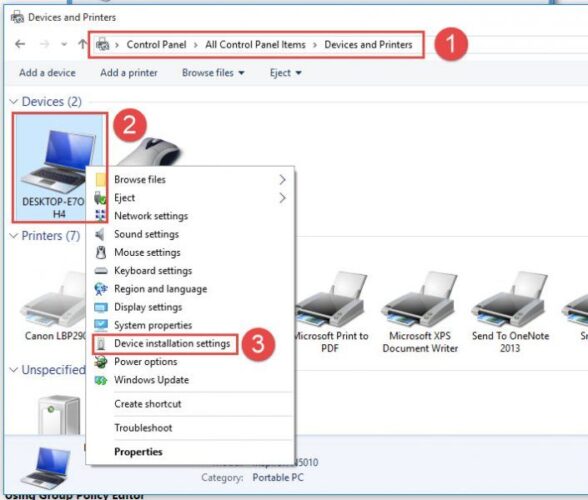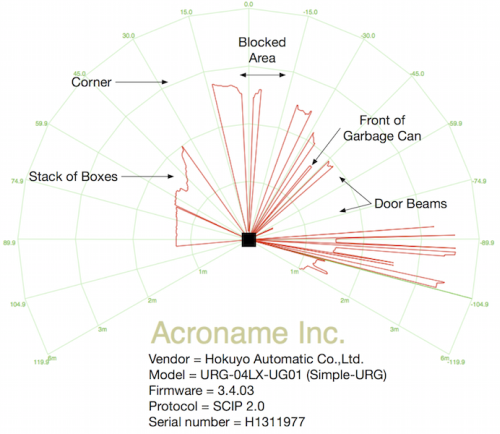Find ASUS and ROG driver downloads, software, wallpapers, and 3D printing files for motherboards and graphics cards. GPU Tweak II, CPU-Z, GPU-Z, etc. WebDriver for Chrome. All code is currently in the open source Chromium project. This project is developed by members of the Chromium and WebDriver teams. Download PC Drivers - Windows 10, Windows 8, Windows 7, XP and Vista Drivers - Help and Fixes for Driver Updates and Windows and Mac Errors and Support. We provide customers with smart sensing technology solutions that will maximize your business operations and equipment.
- Download Hokuyo Automatic Driver Installer
- Download Hokuyo Automatic Driver Scanner
- Download Hokuyo Automatic Driver Download
- Download Hokuyo Automatic Driver Win 10
Summary
Be default, Windows 7 automatically installs drivers for the devices that are connected to the computer. However, if you do not want Windows 7 to automatically install the drivers, you can use one of the methods listed in this article.
Methods 1: Change device installation setting
Click Start, type devices and printers in the search box, and then click Devices and Printers.
All the devices connected to the computer are listed, including monitor, keyboard, mouse, printer, and so on.
Under Devices, right-click the icon for the computer, and then click Device installation settings.A new window pops up asking you whether you want Windows to download driver software.
Click to select No, let me choose what to do, select Never install driver software from Windows update, and then click Save Changes.Click Yes when you are prompted for confirmation.
Methods 2: Configure group policy settings
Note This method only applies to Windows 7 Professional, Windows 7 Ultimate, and Windows 7 Enterprise.
Grupo@sitre driver download for windows 7. Click Start, type gpedit.msc in the search box, and then press ENTER. This step opens the Local Group Policy Editor.
(Click Yes if you are prompted.)Expand Computer Configuration, expand Administrative Templates, expand System, expand Device Installation, and then click Device Installation Restrictions.
In the right window, double-click Prevent installation of devices not described by other policy settings.Click to select Enabled, and then click OK.
Restart the computer.
This article describes how you can control when Windows Update distributes your driver.
When submitting a driver to Windows Update, the Driver Delivery Options section presents two radio buttons: Automatic and Manual
Under the Automatic option there are two checkboxes: Automatically delivered during Windows Upgrades and Automatically delivered to all applicable systems. Automatic is the default setting for all new shipping labels.
When the first checkbox is selected, the driver is classified as a Dynamic Update (a term that applies to upgrade scenarios). Windows automatically preloads drivers in this category when upgrading the OS.
When the second checkbox is selected, the driver is downloaded and installed automatically on all applicable systems once it is released. All Automatic drivers must first have been evaluated by Microsoft through Driver Flighting.
For more info about the Manual option, see Publish a driver to Windows Update.
User plugs in a device
When a device is connected to a Windows system:
Plug and Play (PnP) looks for a compatible driver already available on the computer. If one exists, Windows installs it on the device. Then, during the next daily scan of Windows Update, Windows searches for a more up-to-date version of the driver. This can take up to 24 hours from when the device is plugged in.
If there is no compatible driver on the computer, Windows searches Windows Update for the highest-ranking Automatic driver.
When searching Windows Update:
In Windows 10, version 1909 and earlier, if no Automatic driver is available for the device, Windows proceeds to the highest-ranking Manual driver.
Starting in Windows 10, version 2004, Windows does not search for a Manual driver when an Automatic driver is not available. For info on how to access Manual drivers, see the Windows Update section of this page.
Device Manager

In Device Manager, when a user selects Update driver:
- In Windows 10, version 1909 and earlier, Windows installs the highest-ranking driver from Windows Update, regardless of whether it is classified as Automatic or Manual.
- Starting in Windows 10 version 2004, Windows only searches the local computer.

When it fails to find a driver, Device Manager shows a button labeled Search for updated drivers on Windows Update, which opens the Settings app to the Windows Update page. To find this button, right-click a device and select Properties. On the Driver tab, select Update Driver and then Search automatically for drivers.
- Starting in Windows 10, version 2004, click Search for updated drivers on Windows Update and then select View optional updates->Driver updates to download Manual drivers.
- In earlier versions of Windows, Device Manager downloads Manual drivers on its own.
Download Hokuyo Automatic Driver Installer
Windows Update
During a Windows Update scan (scheduled or user-initiated):
Edimax usb devices driver download. In Windows 10, version 1909 and earlier, Windows Update automatically distributes Manual drivers in either of the following scenarios:
- A device has no applicable drivers available in the Driver Store (raising a 'driver not found' error), and there is no applicable Automatic driver
- A device has only a generic driver in the Driver Store, which provides only basic device functionality, and there is no applicable Automatic driver
Starting in Windows 10, version 2004, Windows Update distributes only Automatic drivers for a system's devices. When Manual drivers are available for devices on the computer, the Windows Update page in the Settings app displays View optional updates .

Download Hokuyo Automatic Driver Scanner
Summary
Download Hokuyo Automatic Driver Download
The following table summarizes the information above. Windows Update is abbreviated WU.
Download Hokuyo Automatic Driver Win 10
| Driver delivery options | OS upgrades | Connecting new device | Device Manager | WU scan | WU Optional updates page |
|---|---|---|---|---|---|
| Automatic (both checkboxes) | Yes | Only if the local driver is generic or missing | Only in Windows 10, version 1909 and earlier | Yes | No |
| Automatic (to all applicable systems) | No | Only if the local driver is generic or missing | Only in Windows 10, version 1909 and earlier | Yes | No |
| Automatic (during Windows Upgrades) | Yes | Only if the local driver is generic or missing | Only in Windows 10, version 1909 and earlier | Only if the local driver is generic or missing | No |
| Manual in Windows 10, version 1909 and earlier | No | Only if the local driver is generic or missing, and WU has no applicable Automatic driver | Yes | Only if the local driver is generic or missing, and WU has no applicable Automatic driver | N/A |
| Manual in Windows 10, version 2004 and later | No | No | No | No | Yes |
